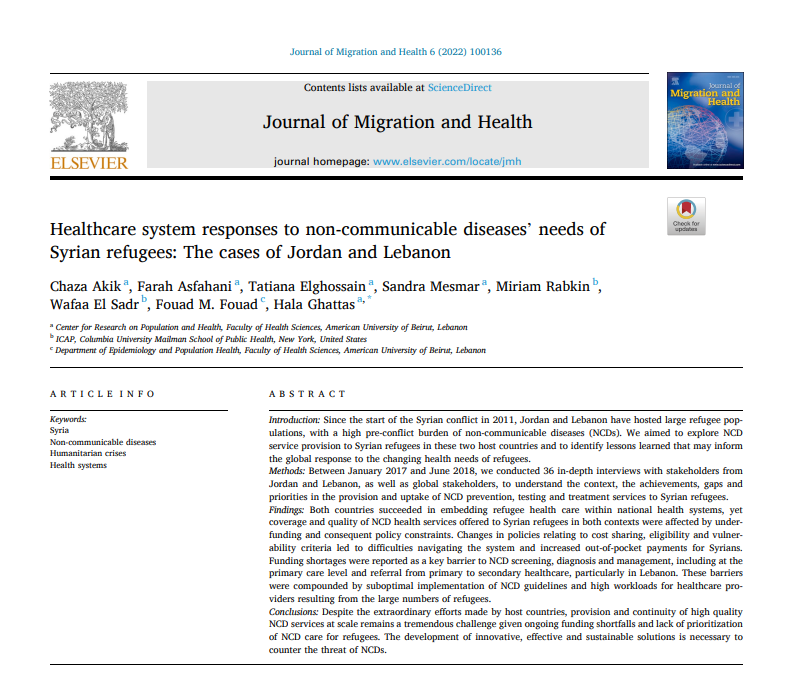Global Allergy & Airways Patient Platform
Atopic Dermatitis Doctor Visit Card
Guide
10 Feb 2026
Journal of Migration and Health
18 Sep 2022

Since the start of the Syrian conflict in 2011, Jordan and Lebanon have hosted large refugee populations, with a high pre-conflict burden of non-communicable diseases (NCDs). We aimed to explore NCD service provision to Syrian refugees in these two host countries and to identify lessons learned that may inform the global response to the changing health needs of refugees.
Between January 2017 and June 2018, we conducted 36 in-depth interviews with stakeholders from Jordan and Lebanon, as well as global stakeholders, to understand the context, the achievements, gaps and priorities in the provision and uptake of NCD prevention, testing and treatment services to Syrian refugees.
Both countries succeeded in embedding refugee health care within national health systems, yet coverage and quality of NCD health services offered to Syrian refugees in both contexts were affected by under-funding and consequent policy constraints. Changes in policies relating to cost sharing, eligibility and vulnerability criteria led to difficulties navigating the system and increased out-of-pocket payments for Syrians. Funding shortages were reported as a key barrier to NCD screening, diagnosis and management, including at the primary care level and referral from primary to secondary healthcare, particularly in Lebanon. These barriers were compounded by suboptimal implementation of NCD guidelines and high workloads for healthcare providers resulting from the large numbers of refugees.
Despite the extraordinary efforts made by host countries, provision and continuity of high quality NCD services at scale remains a tremendous challenge given ongoing funding shortfalls and lack of prioritization of NCD care for refugees. The development of innovative, effective and sustainable solutions is necessary to counter the threat of NCDs.